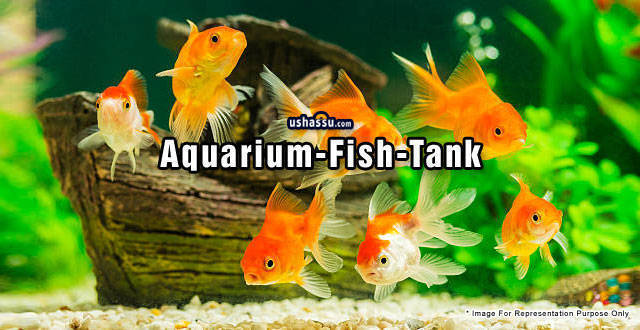If you are reading this article, it looks like you are planning to introduce a new family member (pet) to your home. First i congratulate you for this step and secondary you need to have more patience to make fishes live and swim healthy in your beautiful aquarium-tank without dying, this will definitely bring smile and happiness in you for your efforts kept on your pet.
Things To Consider Before Setting Up An Aquarium Fish Tank
1) Do you have time to spend on lovely fishes. If so…
2) Type of fishes are you planning to raise.
3) Fish compatibility.
4) What type of aquarium or tank required based on your fish selection.
5) Water requirements – conditions.
6) Aquarium tank setup and its maintenance.
7) Aquarium accessories.
8) Privacy for your fish.
9) Fish food-feed.
10) Medicines for fish health.
11) Do fish aquarium – tank make me sick?
1) Time : you need to spare some of your precious time like studying their behavior in your new tank, Happily settled smiles in you, if they are stressed brings you stress. Fish poop-waste removal, changing water in intervals, cleaning tank and its accessories. Moving sick fish to quarantine tank and treating with proper medicine… any many more we may miss out but spending some time and caring fish is important.
2) Fishes : Keep a list of your favorite fishes. This is very important point as some fish need less space and less maintenance. For ex. most Indians love gold fish, If you too love it then u need more spacious aquarium as they eat more and release more waste and need more maintanence where as fishes like tetra, guppy-guppies etc., eat less food so less poop.
Keep a document and list out types of fishes you are willing to keep in your tank. Below are list of aquarium fishes available in India
- Angel Fish
- Badis
- Barb : Tiger, Cheery, Rosy, Gold, Purplehead, Fiveband, Clown, Spotted, Spanner, Checker, Golden Dwarf, Tico, Arulius, Pool, Sawbwa, beardless, Bandula, partipentaz, Swamp, Reside, Greenstripe, Mahecola,
- Betta
- Black Moor-Moose
- Discus
- Fan Tail
- Flower Horn
- Goldfish
- Gourami
- Guppy-Guppies
- Koi
- Molly-Mollie
- Oranda
- Oscar Fish
- Platy-Platies : Gold Red, Neon Blue Wagtail, Mickey Mouse, Parrot, Hifin Tuxedo Yellow, Pintail Rainbow, Tuxedo, Panda, Black Hamburg, Gold Twinbar, Rainbow, Red Gold Wagtail, Pintail Red Wagtail, Red Hifin Balloon, Sunset, Blue Hifin Mickey Mouse
- Rainbow Fish
- Swordtails
- Tetra
- Zebra
3) Fish Compatibility : By now you might kept a list of fishes you want to raise, now find out wether your selected fishes can live together in an aquarium or not as most are not compatible with each other.
Peaceful and calm fishes cannot share the same space with aggressive or less-mild aggressive ones so they start fighting and end result your fishes die, so you need to be more cautious while combining various fish breeds in a community tank, as a fish lover like us show curiosity to see all fish varieties in a single tank, but it is not possible due to compatibility.
Even if compatible, you should also consider on keeping big and small fishes in one tank as there are high chances of big fishes eating small ones.
for eg. gold fish or its community breed are not compatible with Platy, Guppy, Molly etc. Gold fish is considered as a very sensitive breed and sharing space with incompatible fishes might face troubles like nipping of fins or tails which may lead to stress and even death.
Any breed (same community) fishes like Platies or guppies etc. may not be aggressive but one in the group may be the culprit from breaking the compatibility. They chase and poke other fishes.
Some fishes eat food fast leaving others hungry, this may also lead to aggression even though they are very much compatible.
So if you are planning to build a fish tank with all your liked ones, then you should research or speak to your local – online fish seller before you purchase them.
4) Aquarium – Tank Sizes : Fish tank size should based on your fish selection, A standard rule is 1 gallon of water (equals to 3.79 liters) per inch fish is the best suit.
You need to research the growth of your fish and its life span also, for ex gold fish life span is approx 10-15 years and its maximum size be around 7-8 inches if not raised in a crowded aquarium.
Betta fish average lifespan around 3–5 years and its max length is 2.3-3 inches, Platy Fish 3-5 years and max size 3 inches, Guppies maximum size around 1.5-2.5 inches, Molly 3-4 inches etc.
Finally based on your selection and its pairs you need to plan aquarium tank, take me i want 4 pairs of golden fishes in my tank so if i get 1.5 inch each 1.5 x 8 comes 12. As 1 inch per gallon rule i need to take a tank of 60-70 liters (took fish growth also into consideration).
From ushassu.com team we kindly request or suggest you not to overcrowd fishes in your tank, this may lead to ammonia spike which badly effects your fishes and they start dying one by one. You may doubt that aquarium fish seller in your area are keeping so many fishes in one tank and why cant i keep. Please note that any seller will not share the tips how to maintain aquarium fishes, their business is to sell fishes. It may be hard to digest for fish hobbyist-keeper but it is truth.
5) Water : Water plays a major role in fish tank. There are various sources of water availability like Tap water (Municipal), Bore water (Ground or Well), Distilled water, Rain water, Bottled water etc.,
What ever water availability in your area you can use if it satisfy as per fish tank water requirements. for eg. Tap water contains chlorine (kills bacteria and virus present in water) which is good for humans but very dangerous to fish, like wise high levels of pH, iron, ammonia, magnesium, asbestos etc in any source of water can effect on fish.
Below Are Water Quality Requirements For A Healthy Fish Tank
pH levels : Normal range – 6.5 to 8.2
Chlorine : Normal range – 0.0 mg/L
Chloramine : Normal range – 0.0 mg/L
Ammonia : Normal range – 0.0 ppm (mg/L)
Nitrite (NO2) : Normal range – 0.0 ppm (mg/L)
Nitrate (NO3) : Normal range – 0 to 30 mg/L
GH (General Hardness) : Normal range – 100 to 250 mg/L
KH or CH (Carbonate Hardness or Alkalinity) : Normal range – 120 to 300 mg/L
Phosphate (PO4) : Normal range – 1.0 mg/L
Along with this water temperature should range between 23 to 28 degrees celsius (74 to 82 degrees Fahrenheit) as sudden changes in temperature can harm fish.
Note : your aquarium tank may make you sick, without proper precautions cleaning your fish tank like routine water changes, glass and cleaning filtration system with bare hands may effect your health with aquarium granuloma, as good or bad bacteria found in your tank is known to cause opportunistic infections in humans. After aquarium tank maintenance you should wash your hands, fingers, finger nails thoroughly.















